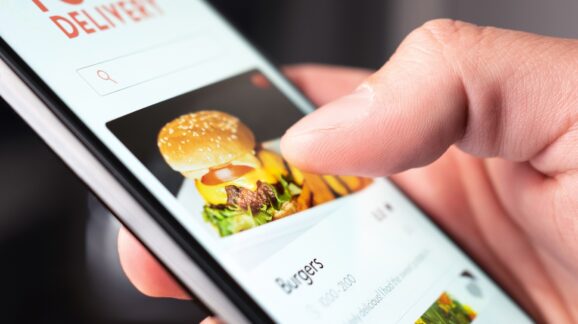Seattle’s new minimum wage rule undermining delivery drivers

Photo Credit: Getty
A new Seattle minimum wage law meant to boost the incomes of app-based delivery drivers has instead backfired, resulting in less work for drivers. Some drivers report they can no longer make ends meet.
The regulation, which went into effect in January, mandates that app-based delivery drivers make $26.40 an hour. Rideshare drivers are unaffected. The intention was, like so many minimum wage pushes, to ensure the workers could earn a living wage. Like so many similar efforts, artificially increasing the cost of labor ended up hurting many workers. DoorDash and UberEats tacked a $5 surcharge onto deliveries to offset the increased cost. Business has dropped off as a consequence.
The assumption behind these type of wage laws is that businesses will simply accept the higher costs and that will be that. Neither consumers nor workers will be affected. That runs counter to Economics 101 which says that costs always trickle down to consumers, especially in an industry, such as food, where margins are thin and businesses rely on volume to make up the difference. Once prices rise, consumers inevitably cut back.
“Third-party delivery vendors are about 30% of our business right now, and we’ve seen a 30% decline in that business,” restaurant owner Uttam Mukherjee told Seattle’s KOMO News in a February report. “I think customers are not willing to pay the extra $5 on each order.”
Becky Yoshitani, who runs a curry restaurant, told NPR, “We are now 20-40 percent below where we were last year.” A survey by the Seattle Metropolitan Chamber of Commerce found that 97 percent want the delivery pay ordinance scrapped.
It’s not just restaurant owners who are being squeezed. So are drivers. Drive Forward Seattle, an app-based driver advocacy group, recently surveyed its members on the impact of the rule. A DoorDash driver identified as Marvin said, “I went from making $300 a day during the weekends to making $80 a day and that’s on a good day. It takes over 2hr to even get one order.”
A driver named Sally told the advocacy group, “90 percent of the customers don’t tip since the app changed. So, they have to go back onto the app after the delivery, if they even remember to do so, in order to tip. That’s a big thumbs down.”
The pushback has been so strong that the Seattle City Council has mulled repealing the rule altogether. Unions, who have struggled to organize the delivery drivers, have pushed back against the potential repeal, arguing that the wage system is working as intended.
The law is only working as intended if the intention was to undermine app-based delivery as an economic model. Given that unions oppose gig-based work in general since it is far harder to organize those workers, that might actually have been the intention.